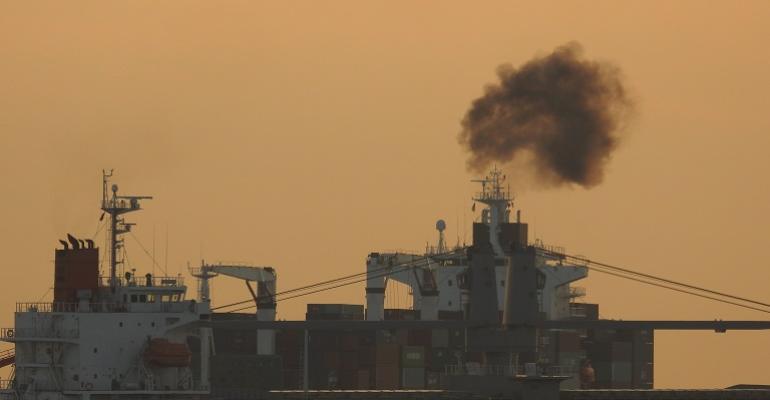Environmental campaign Ship it Zero’s latest report found that Walmart, Home Depot, and Target were the largest ocean import polluters into the US in 2021.
The report entitled ‘All Brands On Deck: Top Furniture, Fashion, Retail & Technology Companies Must Act to Abandon Dirty Ships’ examines shipping emissions from retailers and brands importing into the US during 2021.
2021 saw a surge in shipping demand as consumers stuck at home during the Covid-19 pandemic turned to e-commerce, which in turn caused congestion at ports and terminals in the US further adding to emissions as ships were stuck for weeks at anchorages waiting to enter ports.
Retailers in the report were found to have been responsible for 3.5m tonnes of greenhouse gas (GHG) emissions through the import of goods into the US.
Home Depot was highlighted as the largest ocean polluter in the furniture sector with 420,000 tonnes of carbon emissions related to shipping in 2021, making it the third largest import polluter overall.
Ship it Zero noted that Walmart and Home Depot have made no public commitments to zero-emissions ocean shipping, while the 2040 commitments by Amazon, IKEA and others were “too late”.
Environmental campaigners believe shippers have the power to force their shipping providers into providing zero-emission cargo solutions. “Walmart and Home Depot have enormous market power to help accelerate the shipping industry’s energy transition and they should act to wield it,” Ship it Zero said.
Madeline Rose, Climate Campaign Director at Pacific Environment, said: “Consumers overwhelmingly want their goods shipped on zero-emission ships and have reported that they’d move their business to companies with a cleaner ocean-climate footprint. We urge Walmart, Home Depot and all companies that continue to rely on fossil-fueled ocean freight services to abandon dirty ships now and compete to put their goods on the world’s first zero-emission vessels.”
However, as it stands such zero emission ships do not exist on the long-haul shipping trades that serve the US. The few truly zero emission vessels that are in service globally are generally small, such as battery-powered ferries, and operate only on short-haul routes.
While some container lines such as Maersk and CMA CGM do have methanol-fuelled newbuildings on order, even once delivered these will only form a fraction of their operating fleet. Also securing a sufficient supply of green methanol remains an ongoing issue.
With shipyards already full up with containership orders, further orders for dual-fuel tonnage are now unlikely to be delivered before 2027.
Existing lower emission options are drop-in biofuels, but these are still the early stages of commercialisation, and LNG, which remains a fossil fuel and has been labelled a “greenwashed solution” by Pacific Environment due to its methane emissions.
Copyright © 2024. All rights reserved. Seatrade, a trading name of Informa Markets (UK) Limited.
Add Seatrade Maritime News to your Google News feed.  |

